Traditional mills in the UK
As flour became hard to find in the supermarkets, people sought it from other sources. An unexpected effect was a sharp increase in demand for smaller traditional mills as people turned to independent millers for their flour. As well as helping support small traditional mills that had lost income from tourism due to the national lockdown, this also allowed some older mills to begin milling flour again.
Letheringsett mill
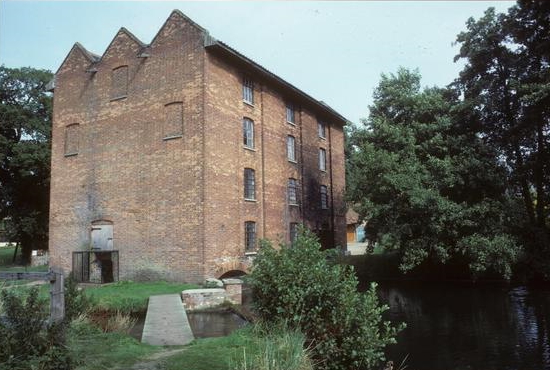
One mill that saw a huge increase was Letheringsett mill, Norfolk’s only flour-producing watermill. The mill carried out a month’s work in two days, milling around 2.8 tonnes of wheat from Monday to Wednesday due to the increase in orders, with many trade customers ‘double-buying’ to ensure a supply of flour. As well as trade customers, Letheringsett Mill also took on many orders for domestic flour from those who were home-baking during self-isolation, something that became a popular hobby during the lockdown period.
Charlecote Mill
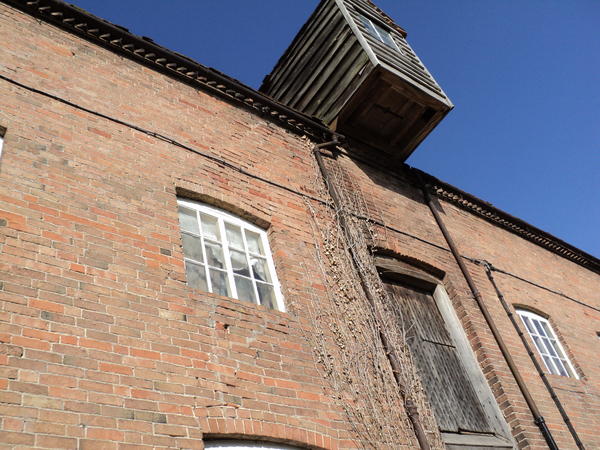
Another traditional mill which saw a huge increase in demand following the COVID-19 pandemic was Charlecote Mill, a Grade II listed mill in Warwickshire. Demand for flour pushed Charlecote Mill to double their production, milling ten tonnes in about 3 weeks and leaving them with a second week waiting list.
Foster’s Mill, Swaffham Prior
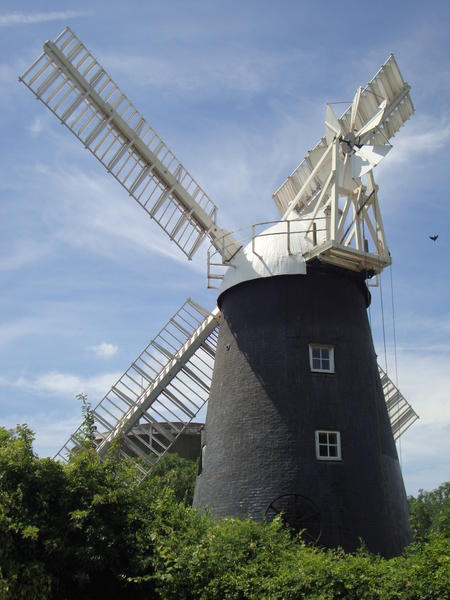
Before the lockdown, Foster’s Mill in Swaffham Prior only opened their mill shop once a week on a Thursday, however during the lockdown they increased this to twice a week, also opening on a Monday, to supply the local community with flour. Foster’s Mill soon became the centre of the community with their first Monday opening experiencing huge queues stretching into the local village. The mill also experienced a large increase of sales following their expanded hours of opening with 60-70% of those making transactions being repeat customers.
Brixton Windmill

Despite not being open for visitors due to COVID-19 restrictions, Brixton Windmill became a community hub during the lockdown by providing flour to established local shops that have stayed open whilst also donating flour to two local food banks. Although Brixton Windmill couldn’t take on new orders as their increased production couldn’t supply the demand, providing the local community with flour and donating flour to food banks shows how important the traditional mill was during the lockdown especially during a shortage of flour in the supermarkets.
Sturminster Newton
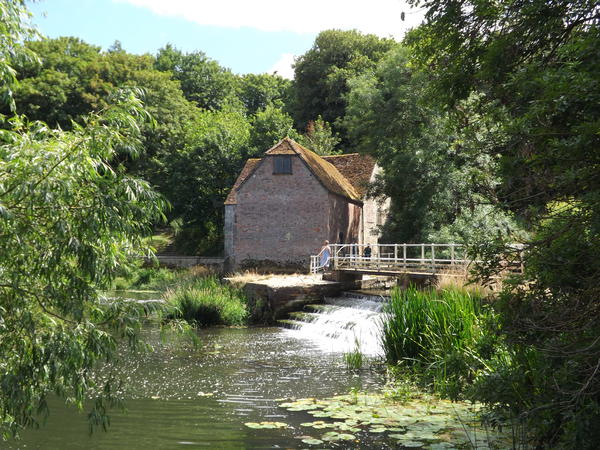
Sturminster Newton, a mill mentioned in the Domesday Book in 1086, is a working tourist attraction that sells flour to visitors. However, it turned back to commercial milling for the first time since 1970 during the national lockdown, which put a halt to the mill’s main income. In the first ten days of milling, Sturminster Newton had milled a tonne of wheat, which usually amounts to a year’s supply for the mill when acting as a working museum. By the middle of April, the mill had supplied local grocers and bakers with 200 bags of flour weighing at 3.3lb.
Holgate Windmill
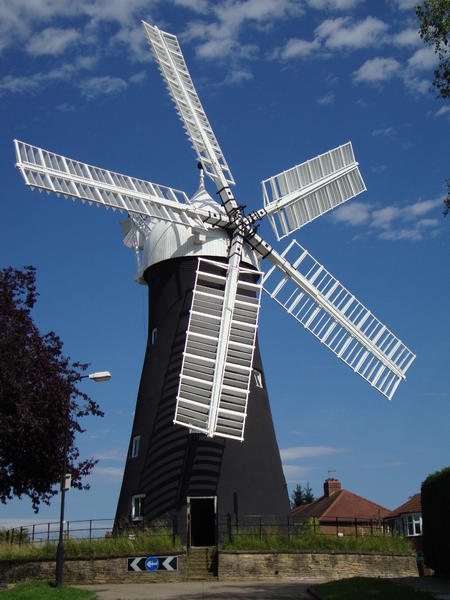
One mill helping out another: Holgate Windmill in York In mid-February were concerned at reducing wheat stocks and were struggling to find good quality milling wheat. The offer of some wheat from Heckington Windmill in Lincolnshire was too good to refuse “so we hired a van and drove to a farm a few miles from the mill to bag and load one and a half tonnes of Crusoe wheat. Little did we know how important this wheat would be when the coronavirus situation worsened”.
Wicken Mill
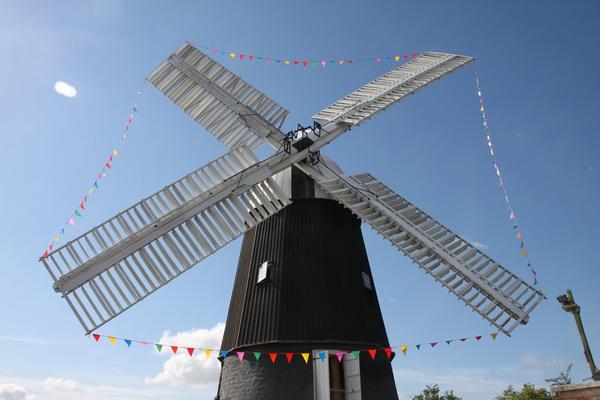
At Wicken Mill in Cambridgeshire they decided to stop selling flour direct from the mill at the beginning of the lock-down, for the protection of millers, customers, and villagers. Instead supporters could buy windmill flour from two local outlets, Daily Bread in north Cambridge and the Stretham Village Store, which the mill supplied with wholemeal and white flour in larger batches.
The weekly delivery was done in a most unusual way, by wheelbarrow! The mill has been busier than at any time since 1900, and they say If they can retain 5% or even 10% of our new supporters it will be a considerable benefit to their efforts to sustain the windmill.
Redbournbury Mill

Redbournbury Mill said, “we are certainly milling “overtime”! The demand for flour has been incredible. We last opened the mill on Saturday 21 March. We expected to be busy and decided to open early at 8am. By 7am we had had our first customers and by 7:45 we had a queue of people out of our gates and down the lane for over 50 yards. Our bakery had a similar queue. By 8:30 we had sold nearly two tonnes of flour. We had five people bagging more flour while we were open but sold out of everything by 10:30 am“.
North Leverton Windmill

North Leverton windmill in Nottinghamshire is run by volunteers. “Although the windmill is closed to visitors, it is still milling every week and supplying local villages, community groups, those supporting the vulnerable as well as our regular shops, pubs (doing takaways) and bakers. We take orders over the phone, email and Facebook, then when the orders are ready we allocate 10-minute time slots and our customers come and collect. It has worked very well, we keep to the social distancing rules and everyone has been great at helping us.“
Barony Mill, Orkney
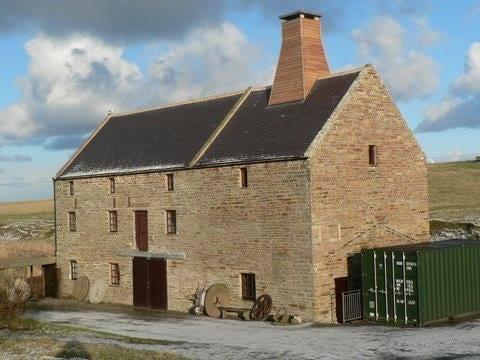
Barony Mill, Orkney were milling until the end of March when they had milled all needed from last year’s harvest. “Usually the mill opens in May to visitors but of course we haven’t been able to do that. However, the miller is still working dealing with deliveries, packing and a big increase in online orders. In addition we have become an international operator!” They were delighted to receive a big order from the USA and were hopeful that this would be the start of a successful relationship.
Sources
The Guardian, Back to the grind: historic mills boosted by flour shortage during Covid-19 lockdown, 7th June 2020, https://www.theguardian.com/business/2020/jun/07/back-to-the-grind-ancient-mills-boosted-by-flour-shortage-during-covid-19-lockdown
Eastern Daily Press, Home-baking boom during coronavirus lockdown sparks huge demand for bread flour, 24th March 2020, https://www.edp24.co.uk/business/farming/letheringsett-watermill-sees-huge-surge-in-demand-for-flour-during-coronavirus-lockdown-1-6575897?fbclid=IwAR1c6YoZdFFmWaxJj-NxgRizF6EBP3RBMkbukjvql-6PzcI1gueh7XRwlqA
Daily Echo, Sturminster Newton Mill back in production to meet demand, 19th April 2020, https://www.bournemouthecho.co.uk/news/18388222.sturminster-newton-mill-back-production-meet-demand/
Mail Online, It’s historic Miller time! Domesday Book-era water mills join commercial giants in meeting UK’s demand for flour during Covid crisis, 1st May 2020, https://www.dailymail.co.uk/news/article-8278103/Domesday-Book-era-water-mills-crank-life-meeting-demand-flour-Covid-crisis.html
Mill News, Hero millers work overtime to beat pandemic
